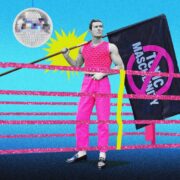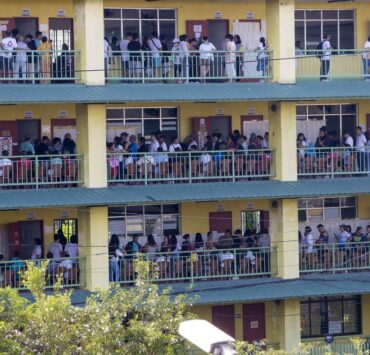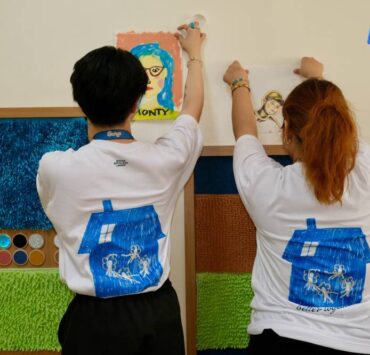Summer of numbers and change
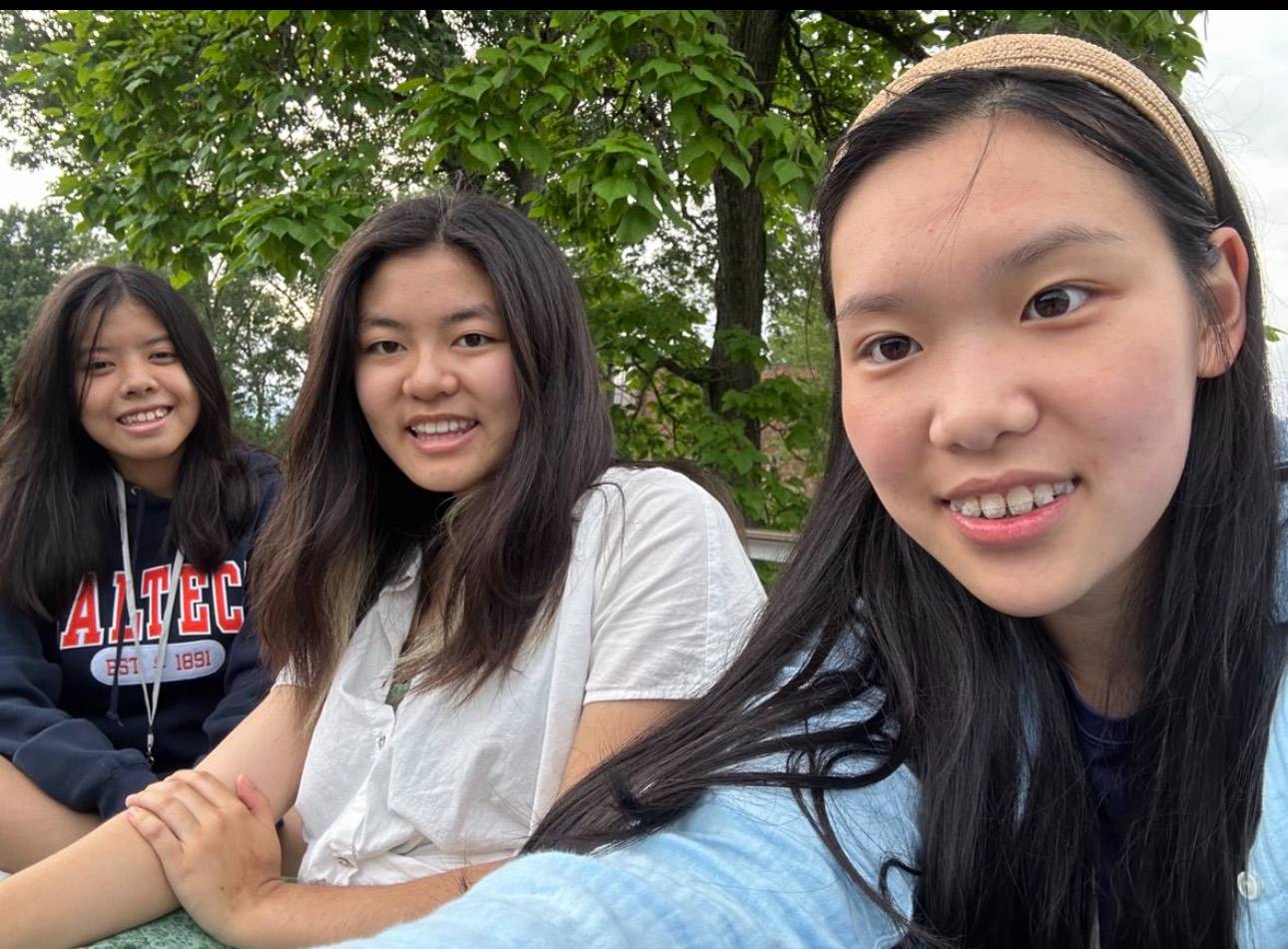
For students returning to school for the new year, in the midst of adjusting to new subjects, new teachers, and new classmates, the most common question asked is “What did you do over the summer?”
While people I know ticked off items on their bucket list like going on a trip to Japan, or doing theater for the first time, I too was ticking off an item on my bucket list, in the middle of Terre Haute, Indiana, with nothing on my mind but number theory and proof writing.
I was a returning student of the Ross Mathematics Program, a six-week residential math camp for high school students held at the Rose-Hulman Institute of Technology, a private university in Terre Haute. Primarily focusing on number theory, it is “dedicated to creating an experience that allows students to dive into mathematics deeply.”
Founded by Dr. Arnold Ross, the program has been running every summer since 1957, and as such, is one of the oldest math camps in the world.
About 60 students for each of the two sites of the program are accepted every year, after qualifying by completing an application process that includes a personal statement, several short essays, a school transcript, a recommendation from a teacher, and, most importantly, a challenging set of problems that requires in-depth solutions. In 2023, around 15 percent of complete applications were accepted.
Initially, for my first year in 2023, the camp was going to have a Ross Asia branch that would be held here in the Philippines. I first heard about the camp when the emeritus director visited my school and gave a talk about math, encouraging me and my schoolmates to apply.
Looking through the website afterwards, I was captivated by the idea of the camp and its emphasis on having a collaborative environment, since based on my own experience in the Philippines, similar gatherings for high school students are typically centered around math competitions.
I decided I had nothing to lose if I applied. While not expecting much, I was pleasantly surprised to receive an email notification saying that I somehow got into the program. Although in the end, the Ross Asia branch was canceled all together, I was informed that I could join Ross Indiana instead. For six weeks of my summer in 2023, there I was in an environment I had never experienced before—immersed in math all day, every day.
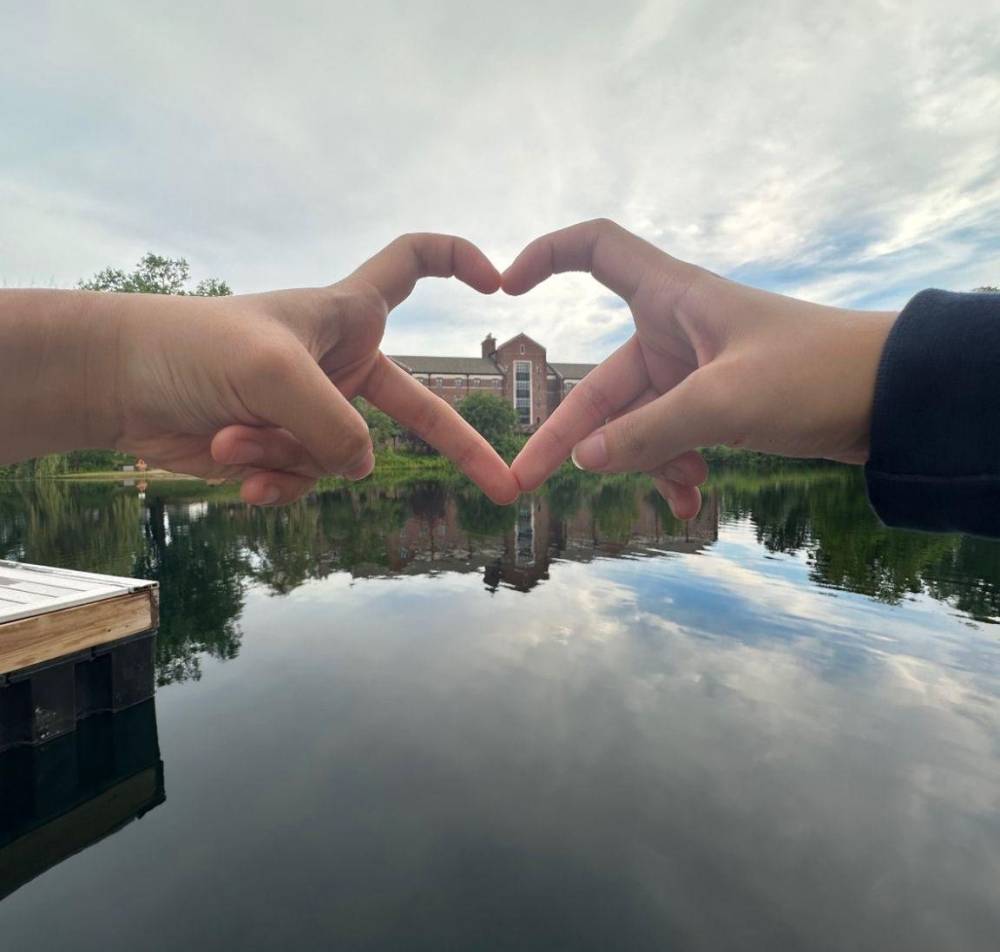
Math all day, every day
I felt that those six weeks were the most exhilarating of my life, which is why when applications opened again for 2024, I did not hesitate to apply once more. Just like the previous year, my request for financial aid (covering lodging and food) was approved, so I prepared to travel 8,000 miles across the globe once more.
As I finally landed in Indianapolis Airport and made the one-hour drive to the Rose-Hulman campus, it all felt familiar yet new at the same time. At that moment, I was never more prepared for another summer of number theory. I was once again the only Filipino student, joining participants from China, Turkiye, Taiwan, Morocco, Singapore, and other countries in the program.
As I walked by the lake, taking in the warm breeze, the enthusiasm was palpable. You could see it in everyone’s faces—from the students to the counselors and the professors—and I embraced it. Math brought this diverse community together in a way that’s distinct from anything I have been a part of before.
After a quick breakfast the next day, we dove right into the first number theory lecture from 9 a.m. to 10 a.m. This would become the daily weekday schedule for the next few weeks for everyone at camp. In 2024, all the number theory lectures were taught by Dr. Timothy All, the Ross Indiana site director. His lectures were clear and well-explained and his enthusiasm was nothing short of infectious. Having never attended any formal math lectures like this prior to being at Ross, I was enthralled all over again by everything I saw.
‘Families’
Right after the morning lecture, the camp was split into groups called “families”—one counselor and one to two returning students who would guide four or five first-year students in anything related to math, from the problem sets, to the lecture material, to literally any math they wanted to talk about.
Each family was different, with some covering more rigorous material, others covering applied math, and so on. My own family in 2024 fell somewhat under the applied math category, as our topics of discussion ranged from number theory to other things like cryptography, game theory, and how math relates to music, which was also an interest that we all happened to have in common.
These meetings usually involved a lot of whiteboard usage, which either led to productive discussions or devolved into complete chaos. Either way, the sense of community only became stronger with each passing day.
After family meetings, we would head to the dining hall to get lunch, after which we would have free time to do whatever we wanted—and most students chose to spend it doing more math. It was a normal thing to see groups of students huddled together and working on random problems, all freely throwing ideas at each other, whether those ideas made sense or not.
The main thing we were expected to do, though, was to work on our problem sets. These sets covered a variety of number theory topics, some of which would have been covered in our morning lectures. We would spend any time ranging from under a day, to over a week on a particular set, then hand them in to our respective counselors for individual and in-depth feedback on our work. Only then would we be given clearance to move on to the next problem set, and revise any previous work.
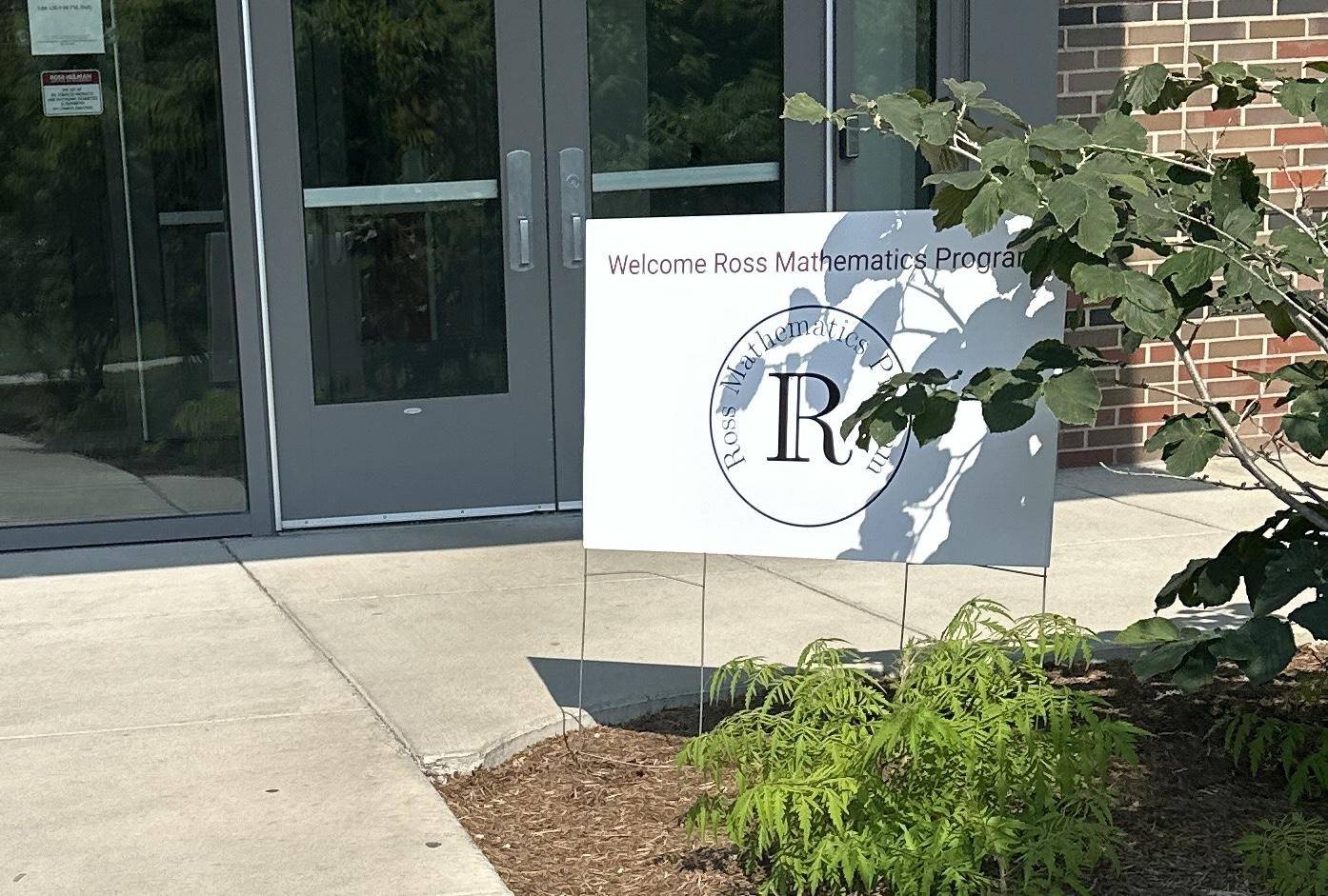
Advanced lectures
There were also activities in the afternoons and at night. One of these activities was the scheduled (and optional) advanced lectures by invited professors, who covered a variety of fields of their expertise. In 2024, there were lectures on p-adic analysis, image compression, functional analysis, translation surfaces, machine learning, proving using lean, and mathematical computation. Some counselors would also give their own shorter lectures, usually based on their own fields of expertise in math. (Some students would prepare their own lectures as well!)
Despite the large selection of lectures to attend, they were far from the only thing we did throughout the summer. I met a lot of sporty and also musically-inclined people, and there were countless opportunities for a little recreation. Ultimate Frisbee games were held nearly every afternoon, a 5K marathon was held halfway through the camp (my friends and I actually got separated from the path and ended up walking way more than 5 km), and people played a lot of other sports too such as volleyball and tennis.
As sundown, we would all head back to the dorms just in time for curfew, and every study room and common area would immediately became populated. Some groups worked on their problem sets as usual, some had heated mathematical debates, while others gathered around the dorm piano, or even just played board games. The building was so full of life that things often didn’t die down until around 2 a.m.
Around the fourth week was when the piano—and any other instrument—started getting more use, just in time for the counselor-organized talent show. It was a fond memory for me in the two summers I spent at the camp, seeing different aspects of everyone given an opportunity to shine. A lot of people danced (which I did with the other returning students), sang, played the piano or violin, did speedcubing (or at least competed with each other to solve a Rubik’s Cube the fastest), or told jokes.
Goodbyes
A few more weeks passed, and just as soon as it started, the summer came to a close. As early as 3 a.m. on the last day, people were hugging and sharing their tearful goodbyes. When noon rolled around, I too was on a bus going toward the Indianapolis Airport, watching as the familiar campus became smaller and smaller.
Unfortunately, I will not be returning to the camp next summer since students can only return for a maximum of one year, unless they choose to become a counselor. Nevertheless, the opportunity to be in the Ross Program is possibly one of the most unforgettable experiences in my life. Living away from home for six weeks on the other side of the world gave me a sense of independence that I never had before, and there was a freedom to just be able to do (mostly) math all day.
I first discovered my love for math here in the Philippines when I was much younger, but the collaborative spirit that I experienced at Ross was something that truly stuck with me, creating something like a home away from home. Until now, I still keep in close contact with several of my friends from the past summers.
Meeting all kinds of people at Ross, united by the simple fact that we shared a passion for the same thing, led me to realize that there’s actually a huge community of people outside my own tiny bubble that didn’t view math as a competition, or as a boring class they couldn’t wait to stop taking. It was after this experience that my own love for math was reignited, as I understood that at its core, math is a product of creativity, innovation, and most importantly, community.
If you share a great love for math and you’re looking for something to do in future summers as a high school student, you might want to apply to the Ross Program–the experience will undoubtedly be unforgettable.
Iris Lexi Ababon, 17, is a grade 11 student from Philippine Science High School. An aspiring mathematician, she hopes to one day contribute to the development of math education in the Philippines. In between painting pixels, brushing up on olympiad geometry, or tirelessly farming on Stardew Valley, she also performs the piano at competitions and concerts.













